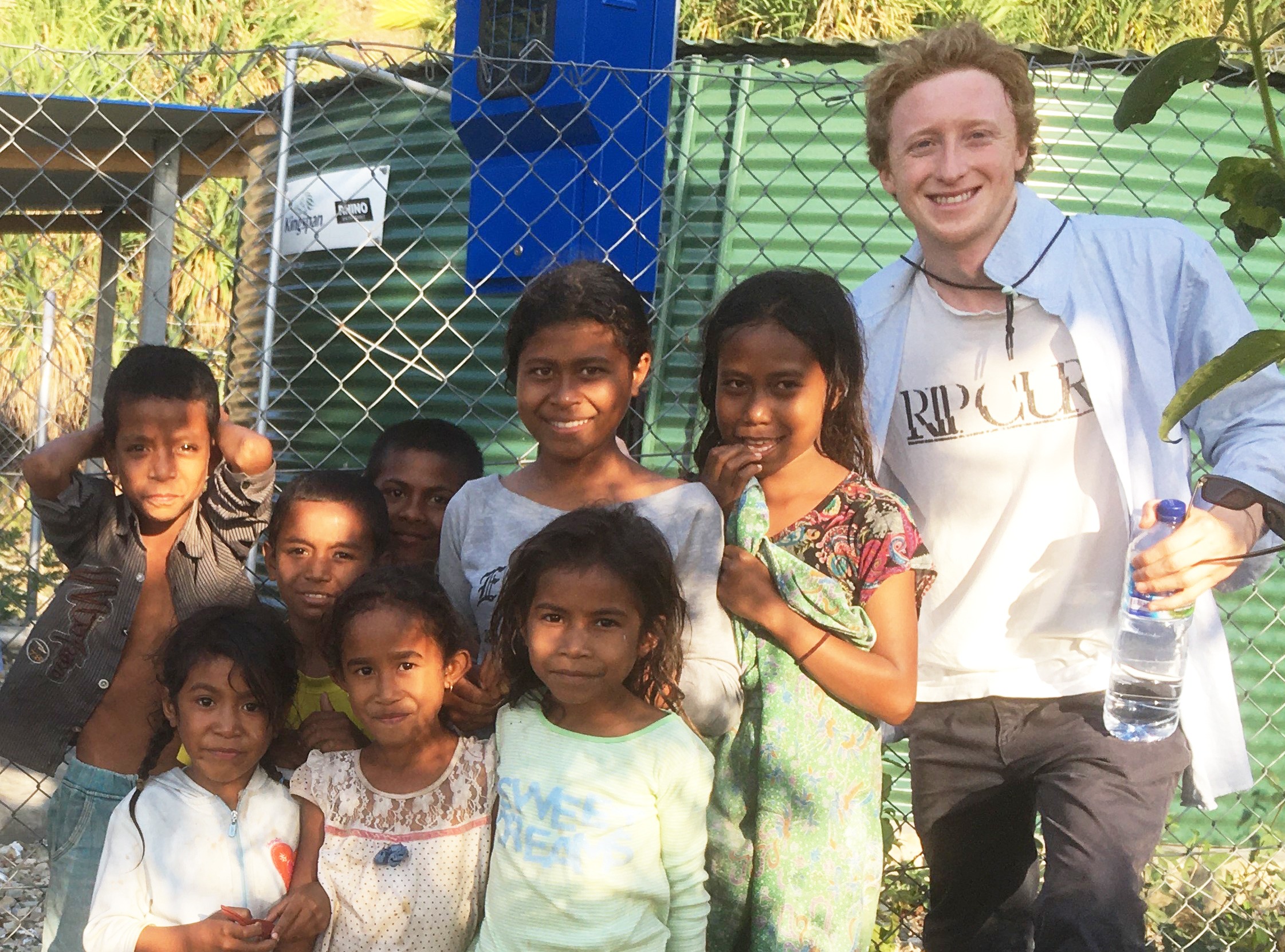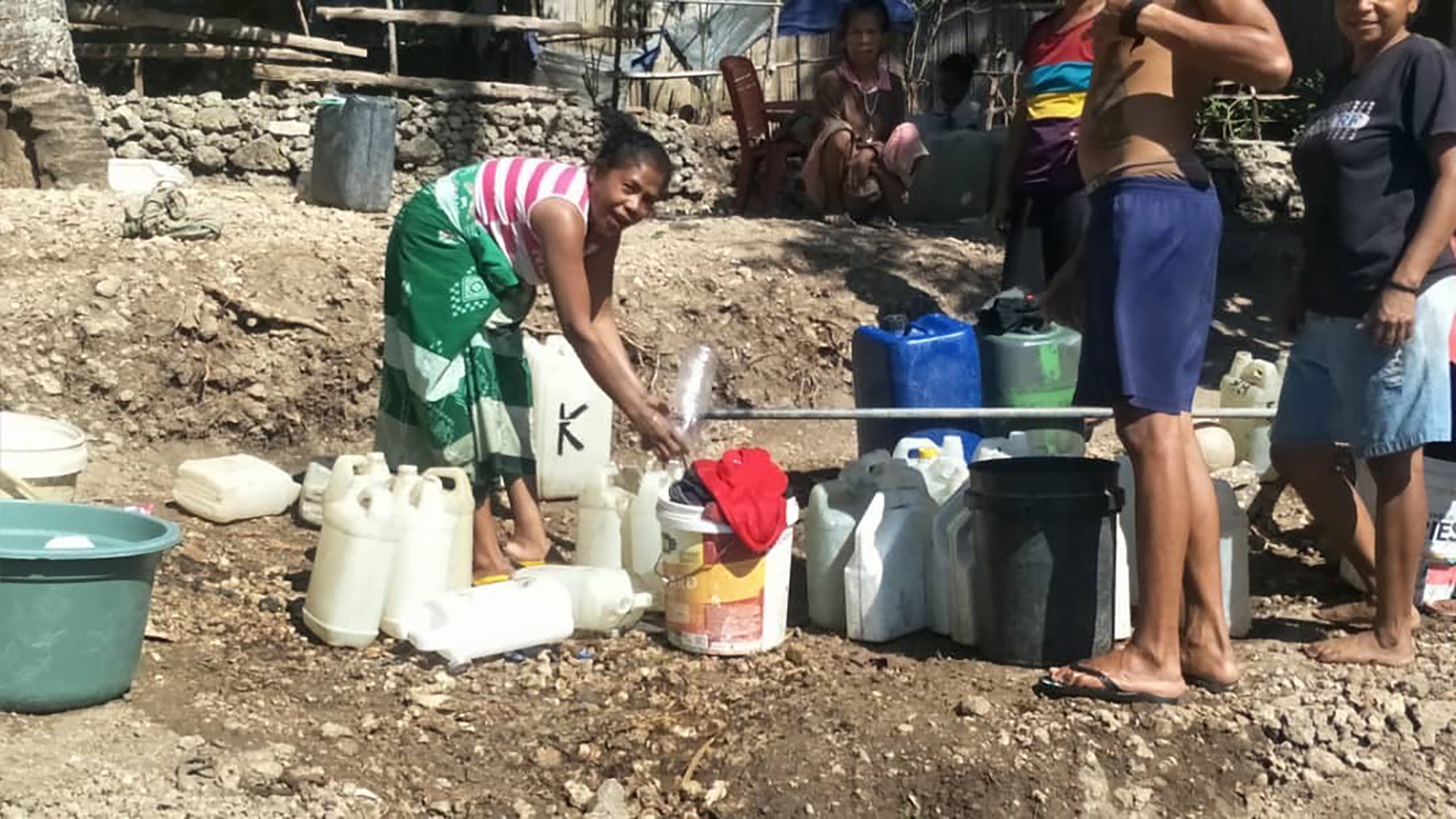

Impacts Flowing in Timor-Leste
August 27, 2020
We have previously reported on investigations by our Tasmanian committee on how best to impact two significant and somewhat connected issues in Timor-Leste – the poor water supply for domestic and agricultural use and the prevalence of poor nutrition and limited vegetable and fruit supplies.
We are pleased to provide this update on the impact of the relatively small but targeted investment by the Fund and our partners in this work in and around the village of Balibo in the east of Timor Leste, and along the Loes River in the northern region. Richard (Dick) Warner, chair of the Fund’s Tasmanian Committee explains further below.
“In 2018, I had the privilege of meeting Nobel Prize Winner, Dr Jose Ramos Horta and soon after I met the former Timor-Leste Ambassador to Australia, Mr Abel Guterres. Both meetings reinforced the view that the Tasmanian committee of the Crawford Fund could initiate valuable projects in particular regions of Timor Leste, playing to Tasmania’s strengths around water and horticulture,” said Dick.
After consultation with others in the Fund who have worked for many years in projects and capacity building in Timor-Leste, and with advice from Dr Nitin Verma, Tasmanian honorary consul to Timor-Leste, the Tasmanian Committee decided on two projects: one to create a model vegetable farm on the banks of the Loes River, and the second to increase the quality and supply of domestic water in and around Balibo.
In September 2018, on a self-funded trip by Dick and Mr Chris Thompson, a highly regarded Tasmanian agricultural and water consultant, and Mr Abel Guterres, visited the site of the planned farm and Balibo to intensively pursue both projects rather than rely on ‘desk top’ analysis.
Farm
“Timor-Leste has one of the highest prevalence of child stunting in the world. We are focusing on capacity building in the production of fruit and vegetables with the development of a farm business as our contribution to impacting this in the east of Timor Leste,” explained Dick.
The 3.2 ha farm is situated on the banks of the Loes River, one of the few rivers in Timor-Leste which flows all year providing reliable irrigation water. The soils are alluvial loam which are easily cultivated by hand or small machines.
“An assessment of the soil fertility and fertiliser requirements has been made, suitable vegetable seed has been supplied, and a first stage business plan has been developed and refined recently with the assistance of the Market Development Facility, an aid organisation targeting growth and development in agriculture and tourism in Timor-Leste,” said Dick.
Dick explained that for the future, a potential joint venture is being considered which will greatly enhance the sustainability of the farm business, and connections are being made with other projects engaged in farm development nearby.
Balibo Water Quality
The Crawford Fund supported a second visit to the farm and to Balibo by Mr Chris Thompson in November 2019 with our student awardee Oliver Gales, the current Rhodes Scholar from the University of Tasmania. Their objective was to define a plan for the installation of six ultrafiltration units (SkyHydrants) in strategic locations in and near Balibo.
The quality of the spring water, assessed by the Timor-Leste Ministry of Water Supply, identified heavy loads of harmful bacteria which the ultrafiltration units will remove. The six units, manufactured in Australia, have been supplied by the Balibo House Trust. The Trust focuses its efforts on delivering strategic capital works and infrastructure to help establish the foundations of a resilient local economy based on education, training and employment.
Chris Thompson, with the support of Oliver Gales, recommended that one ultrafiltration unit per school be located in four schools and two located in central Balibo. With COVID-19 restrictions, the units will remain in storage in Balibo until a local company can be commissioned to install them.

Balibo Water Supply
As reported by our student awardee Oliver Gales after his 2019 award visit to Timor Leste, people in the communities in and around Balibo walk several kilometers each day to reach reliable water sources, and this is usually done by children to the detriment of their time in school. He also noted that the lack of supply of water is a major factor for the region in its pursuit of improving the standard of living.
“We found on our 2018 visit that Balibo water is supplied from five natural springs with pumps lifting the water to several reservoirs where it is reticulated to water points from which it is collected, usually by children and mothers, in bottles. All Balibo spring water is not suitable for drinking without boiling,” explained Dick.
“One solar pump was found not to be operating at all on most days. On close examination by Chris Thompson, the pump needed to be replaced by a pump better suited to the capacity of the existing solar panels,” reported Dick.
Since then, a suitable replacement pump was purchased from the local supplier in Dili and generously paid for by the Australian Embassy in Dili and Rotary Club District 9550 based in northern Australia. After some difficulties with delivery, remedied by assistance from the Fund, the pump was installed and is working satisfactorily, much to the joy of the local community.

“What made both visits so successful was the fact that Mr Guterres was able to introduce us to many local people who have assisted with both projects. I am in regular contact with Mr Guterres and Chris is in contact with Mr Eurico Mangas and Mr Rino Fernandes both of whom assisted with installation of the pump. I am also in contact with Mr Kim Tchia the Dili based pump supplier.”
“While COVID-19 travel restrictions have interrupted our on-going plans with our partners in Timor-Leste, we are certainly happy to be receiving photos from them. They show the impact for the local villagers just from the improvements to the water pumps, particularly for the women and children. The Tasmanian Committee is looking forward to continuing our contact during COVID-19 and in progressing the work as soon as we can,” said Dick.




